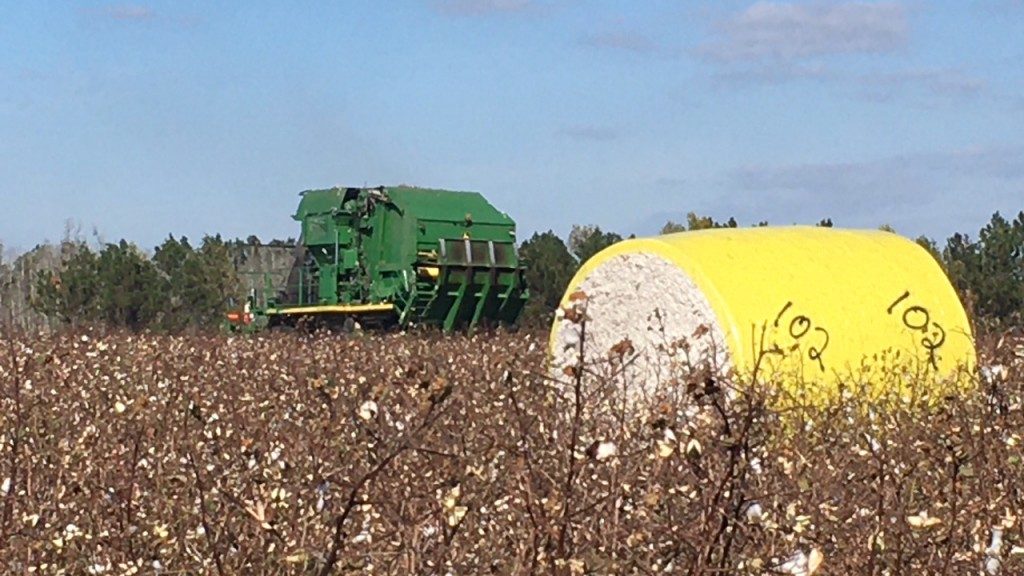The National Weather Service is forecasting low temperatures over the next 3-5 days to dip into the lower 40’s and upper 30’s. As of now, the coldest night is predicted to be Friday night/Saturday morning (keep in mind when they forecast the nightly low temp it usually always occurs just prior to or at daybreak the following morning). There are two issues you need to be aware of.
First, based on experience, when we have 3 or more days with low temperatures in the lower 40’s or lower the peanut maturation process will shut down. Therefore, with the forecast for the next 3-5 days indicating low temperatures in that range, we would not expect any fields to mature beyond where they will be as of this weekend. Even if a Hull-Scrape Maturity Profile indicates a field is 7 days, 10, days, etc. from reaching optimal maturity, the maturation process will shut down as soon as we have the kind of temperatures we expect to get over the weekend. If you have fields left to harvest, wait to begin harvest as soon as the colder mornings pass.
This brings me to the second, and more critical, point. DO NOT DIG the day before a morning in which the low temperature is low enough that there is a risk of frost or freezing. As of tonight, the low for this coming Friday night / Saturday morning is 38 degrees in the Tifton area. Once we start approaching the 35-36 degree range, frost can occur, especially in low lying areas of a field where the colder air will be.
Frost or freezing temperatures on freshly dug peanuts can cause freeze damage to the kernels, which in turn, can be graded as Seg 2 peanuts. Seg 2 peanuts are greatly devalued when graded ($132 per ton). If a field is dug on Friday afternoon and we approach the middle 30’s in temperature the next morning, freeze damage can occur. When dug, peanuts have 40% or greater moisture. Two or three days in the dug windrow allows the moisture content to drop enough so that the seed separates from against the inside of the hull. This separation will alleviate the risk of freeze damage. High moisture content with a seed still in contact with the inside of the hull increases the risk of freeze damage.
Call me if you have any questions (229/873-2359)!
